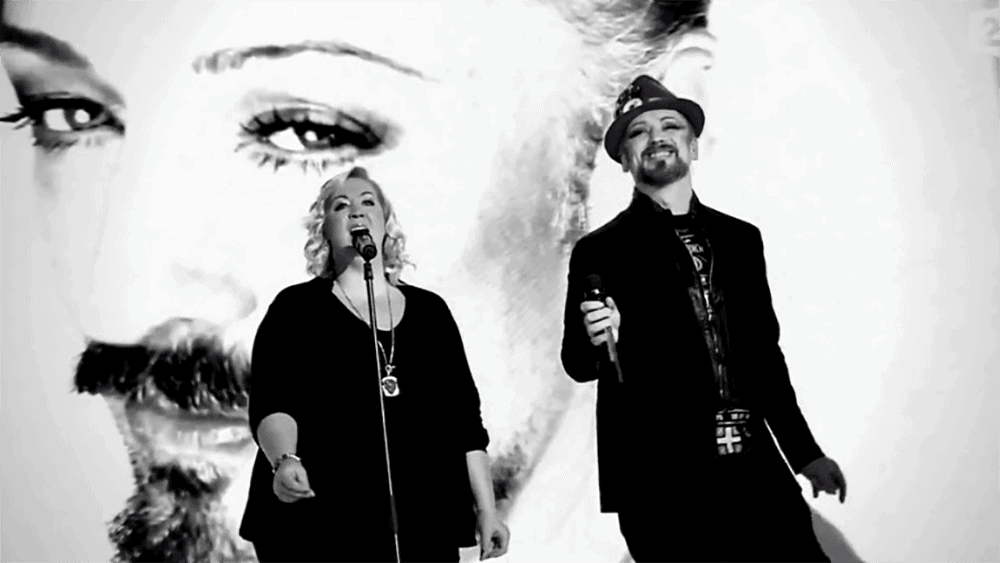JOIN US SEPTEMBER 2024 - APPLY TODAY OR BOOK YOUR PLACE ON ONE OF OUR OPEN DAYS IN BRIGHTON OR SHEFFIELD. UCAS CLEARING IS NOW OPEN.
JOIN US SEPTEMBER 2024 - APPLY TODAY OR BOOK YOUR PLACE ON ONE OF OUR OPEN DAYS IN BRIGHTON OR SHEFFIELD. UCAS CLEARING IS NOW OPEN.

I’m currently sitting here sniffing away, battling yet another cold... I should probably take out shares in Lemsip. And would you believe it, I’ve had about 30 people (today alone) tell me that what I need to do is ‘take a break’. OK, let’s look at the logistics of that for a second. I’m a self-employed singer. I don’t play, I don’t get paid. However, luckily for me I have my fingers in lots of pies and have the advantage of turning my hand to teaching and playing (I am also a musician). But, what about those who have built their whole lives and careers on just their voice?. What about those who sell millions of records and sell out stadiums to adoring fans?. What happens when they get told they HAVE to rest?
In recent news, the legend himself Mr. Ozzy Osborne has yet again postponed, cancelled whole tours due to needing time to recover from pneumonia. Which, might I add, has been labeled the after effects of a ‘rock and roll lifestyle’? Come on guys, the man is about 102 years old. It’s always going to be tricky to get over something like that when you're getting older. Sorry Ozzy, I know you’re actually only 70 (SEVENTY?) And let’s just go back a little… What is this ‘Rock and roll lifestyle’?. Is this now what’s to blame every time a singer cancels a show? Or is this just tabloid propaganda to help kick up a stink, sell newspapers and possibly gig tickets? Let’s blame it on the drink and drugs because that’s far easier than just admitting some artists are exhausted and have worn their voices out.
I’ll be brutally honest, I’ve had my fair share of illness’, vocal recovery time, near death experiences (possibly a slight exaggeration) and I am as about as ‘rock and roll’ as Linda in Lidl’s who works the graveyard shift. The simple truth is, people get sick. People’s immune systems vary, some people don’t value their health and sometimes they do, just a little too late.
Rewinding back to 2 years ago when I had my second bought of laryngitis in a year, I was definitely beginning to make alternative career plans. My voice had all but disappeared, I had a constant cough and I’d lost a whole area of my voice somewhere, who knows where, but let me tell you... for a brief moment in time my unintentional whistle tones rivaled that of Mariah Carey. But it did not sound pretty and I was broken to the point of straining all the intercostal muscles between my rib cage and being hospitalised. All because I didn’t take a break! Vocal damage had well and truly set in and I now needed to seek the help of a professional.
That professional was a realist. She knew she couldn’t take the doctors approach as I was a self-employed singer and this was my life and income at stake. A doctor would suggest complete vocal rest, but a vocal health specialist knows that sometimes that just isn’t possible. You need to stay supple, warm, exercised, hydrated and limber throughout your recovery. It’s tricky to find a balance but your voice is a muscle. And when you stop working that muscle, things start to seize up. You’ve got to keep moving… just very, VERY gently.
So you have a world tour lined up, 30 shows back to back, you’ve rehearsed, screamed, celebrated to within an inch of your life, you do two gigs and BAM, your voice has gone. If you were a guitarist and you broke your hand two shows in could you carry on or would they get in a dep? The truth is, you’d be replaced on a world tour… but you can’t replace the lead singer of a hugely successful international band, can you? The answer is no. You’d have people crying out for refunds left right and center and angry fans taking to social media in uproar. The practical thing to do is to postpone and reschedule your shows for another date when you can give the fans what they really want.
Lets take the recent news of Oli Sykes, cancelling the Bring Me The Horizon tour in order to repair his ruptured vocal cord. "I've ruptured my right vocal chord," he continued, "and I've been told if I don't rest it immediately I'm in serious danger of doing permanent damage." – Oli Sykes. Fans are angry, some sympathetic and some were probably using this tour to decide whether they still even liked BMTH (what with the newer sound and direction the band are taking) but one thing disgruntled fans DO need to remember is NO ONE puts on a huge tour, invests thousands, if not millions into getting it right and promoting it, musicians don’t rehearse for hours a day and they don’t get to show time then turn around and say ‘Naaaah, I’ve got a bit of a sore throat and cant be bothered to gig now’. For someone to finally admit they need to rest, you know things are serious. Even those humble, self-employed ‘Saturday night singers’ don’t like being told to rest. But the reality is if we don’t we set ourselves back months.
It took me four months to recover enough to get back out there and gig the last time I had laryngitis. And I was terrified I’d never be able to sing again. So now when that first sign of a cold creeps in I take that rest. Even just a couple of days, I know my limits and I know the risks of continuing. So I have to weigh up whether I have the necessary recovery time either side of shows and whether its worth the vocal blow out.
Adele, Lindsey Buckingham, Oli Sykes, Ozzy… all of them. They will have been given the ultimatum. ‘Carry on the way you are and you wont have a voice once this tour is over. Or take a break, recover, reschedule. Your fans will still be there.’
My honest advice and Vocal Health Tips For Singers who are struggling right now is:
• Take that break. Even just a day or two. If you can feel the strain kicking in, you need to kick back
• Put yourself first and think about the long-term goals. If you want to have a long and fruitful career, treat your voice with respect now
• Hydrate. Water is everything and yes, we all like a beer or two at a gig, after party, night out… but if you know you have shows coming up, think wisely about what you’re putting into your body. To be the best you must feel the best
• Stop shouting. Sometimes we can’t avoid singing completely, but we are in control of how we use our voices the rest of the time. And if like me, you enjoy a live gig, be mindful of how much your raise your voice over the music to be heard by your mates
• If you are persistently ill, see a doctor. Don’t leave it or rely on throat sprays. Get the medical help you know you need
• Don’t stress. Easily said I know, but the more you worry and panic about your vocal performance the more strain you will feel
• Hum. Keep your voice moving but in a safe way that doesn’t add strain
With the appropriate training and care, all of these symptoms can be prevented. However even classically trained singers can damage their voices due to strain and illness.
• A breathy quality to the voice
• Hoarseness
• Noisy breathing
• Loss of vocal pitch
• Choking or coughing while swallowing food, drink or saliva
• The need to take frequent breaths while speaking
• Inability to speak loudly
• Loss of your gag reflex
• Ineffective coughing
• Frequent throat clearing
• To help prevent disorders caused by vocal abuse (including vocal cord nodes and polyps, and contact ulcers) you need to learn how to talk without straining your vocal cords.
• To prevent disorders related to acid reflux (including contact ulcers and laryngitis) see your doctor to treat the reflux. Medications can help to control stomach acid. Lifestyle changes also help some people.
Changes include:
• Eating smaller meals to avoid overfilling the stomach
• Not eating or snacking three to four hours before sleeping to make sure all food is well digested before you lie flat
• Raising the head of your bed a few inches to keep your head and upper chest higher than your stomach
• Avoiding alcohol, caffeine, fatty foods, chocolate and peppermint, which may trigger heartburn
• To help prevent vocal cord disorders caused by irritation (including laryngitis and vocal cord polyps), avoid smoking, drinking or inhaling chemical irritants.
For vocal cord disorders resulting from vocal abuse, there are two main treatments:
• For short-term relief, rest your voice. Speak or make sounds only when absolutely necessary. Try not to talk or whisper at all for a couple of days. However humming is great for vocalists, it keeps your vocal cords active without adding strain
For long-term relief, voice therapy. Learn the proper way to speak to avoid straining your vocal cords and seek out the help of a vocal health specialist.

- ‘Water bear’ is the common name for a Tardigrade.
- Tardigrades are micro creatures, found everywhere on earth.
- They are the most resilient creatures known.
- They can survive and adapt to their surroundings, even in outer space.
- Their resilience and ability to adapt and survive inspires us in everything we do. We love them.


WaterBear Education Ltd, Hanover House,
118 Queens Road, Brighton BN1 3XG, UK Map
Email: [email protected]
Tel: +44 (0) 1273 726230
WaterBear Sheffield, Unit 4, Gatecrasher,
49 Eyre Lane, Sheffield S1 4RB, UK
Email: [email protected]
Tel: +44 (0) 1143 992720

WaterBear Education Ltd, Hanover House,
118 Queens Road, Brighton BN1 3XG, UK Map
Email: [email protected]
Tel: +44 (0) 1273 726230
WaterBear Sheffield, Unit 4, Gatecrasher,
49 Eyre Lane, Sheffield S1 4RB, UK
Email: [email protected]
Tel: +44 (0) 1143 992720
- ‘Water bear’ is the common name for a Tardigrade.
- Tardigrades are micro creatures, found everywhere on earth.
- They are the most resilient creatures known.
- They can survive and adapt to their surroundings, even in outer space.
- Their resilience and ability to adapt and survive inspires us in everything we do. We love them.
